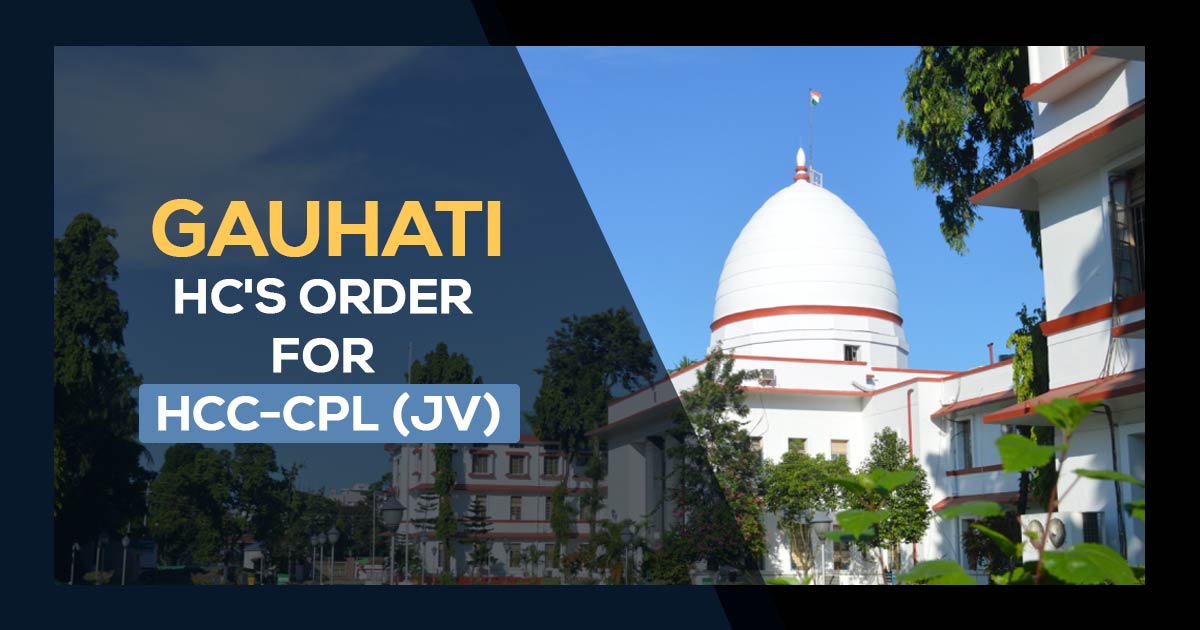
In a recent decision, the Gauhati High Court made it clear that railways can not refuse GST reimbursement due to pricing variations just because the payment of output tax was carried out through an electronic credit ledger and using Input Tax Credit (ITC) under the GST Act.
The single-judge bench, chaired by Justice Devashis Baruah has noted that the petitioner would be authorized for his PVC claim concerning the contract, and GST paid by the petitioner from its electronic credit ledger has to be considered while estimating the Price Variation Claim (PVC) of the petitioner.
The court said that it would be good for the petitioner to take action following JPO dated January 29, 2021, for making its PVC claims, if not already done, and the Respondent Railways shall pay the PVC claims based on the contract.
The case was whether the petitioner would be authorized for reimbursement of the GST on the differential amount of price variation on steel.
The petitioner has a company, a joint venture that took part in the tender process for the construction of a single-line BG Tunnel which connects Tupul and Imphal. The operation of this company was building a new railway line project from Jiribam to Tupul. The petitioner gives the contract to the tenderer seeing their success. Following the acceptance letter, the petitioner made an agreement with the respondents (railways).
This case is covered by Clause 46A of Chapter IV of the Indian Railway Standard General Conditions of Contract. Price Variation Clause (PVC) comes under Clause 46A. It specifies that the price variation clause shall be applicable only for tenders of value as suggested by the Ministry of Railways through guidelines or notifications released from time to time and no matter what the contract completion period is.
Read Also: Bombay HC: Petitioner Can Claim GST Refund If the Particular Amount is Paid
It was stated that the Railways supplied the materials to the contractors without taking any charge, that’s why it fall outside the purview of the PVC. Unless otherwise specified above, the base month for the PVC shall be the month of the opening of the tender, including any extensions.
The railways kept pending the PVC bills relating to steel.
According to the petitioner, the PVC payment claim should be processed under the rules without taking into account any taxes for the Pre-GST and Post-GST periods. The petitioner was lacking the complete tax component on price variation after GST had been arbitrarily withheld, not just the difference in tax burden between the pre-and post-GST periods.
The Court ruled that the petitioner received an input tax credit through an electronic credit ledger since the input tax credit has been carried out by the petitioner from its resources. Simply because the petitioner uses the input tax credit that is credited to his electronic credit ledger for payment of the output tax, which is a permissible mode of payment under Section 49, it would be absolutely against the framework of the GST Act to approve the dispute of the Railways that the petitioner would not be sanctioned reimbursement of the input tax credit that the petitioner used for payment of the output tax credit.
| Applicant | HCC-CPL (JV) Vs Union of India and 9 Ors |
| Case No | WP(C)/2683/2021 |
| Date | 26.06.2023 |
| Petitioner | MR. D MOZUMDER |
| Respondent | SC, NF RLY |
| Gauhati HC | Read Order |








